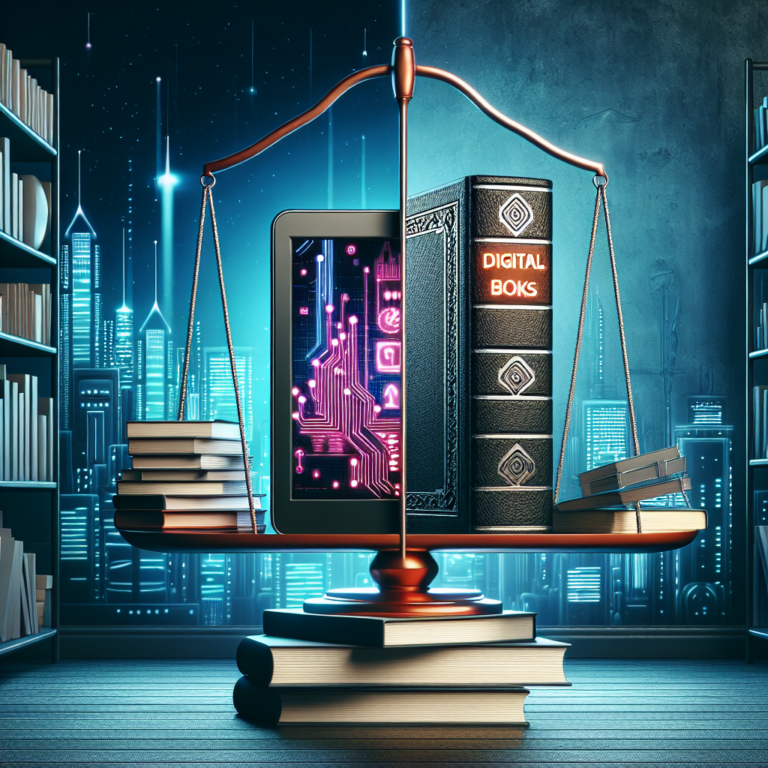In an age where technology permeates every aspect of our lives, the way we consume media has become a pivotal point of discussion. This is especially true in the realm of titles—be it in literature, gaming, or music. The debate between digital titles and traditional titles continues to shape the way consumers make decisions. Understanding the pros and cons of both formats can help individuals determine which best suits their needs and preferences.
What Are Digital Titles?
Digital titles refer to any type of media that is available in a digital format, such as eBooks, digital albums, and downloadable video games. They can be purchased or streamed through various platforms, allowing consumers to access them almost instantaneously.
What Are Traditional Titles?
Traditional titles, on the other hand, encompass physical forms of media. This includes hardcover and paperback books, vinyl records and CDs, and physical copies of video games. These items are tangible and often come with cover art, book jackets, or collectible packaging.
Pros and Cons of Digital Titles
Pros:
-
Convenience: Perhaps the most significant advantage of digital titles is convenience. Consumers can access an extensive library of digital media from anywhere with an internet connection, eliminating the need to visit a store.
-
Storage Space: Digital media takes up no physical space. This is a substantial benefit for avid readers, gamers, or music lovers who may otherwise run out of shelf space for their collections.
-
Instant Access: With digital purchases, there is no waiting for shipping or the hassle of going to a store. Consumers can often access their purchases within seconds of buying them.
-
Lower Prices: Many digital titles come at a lower cost compared to their physical counterparts. The absence of production, shipping, and storage costs can reflect in the lower prices offered.
- User-Friendly Features: EBooks often come with features like adjustable text sizes, built-in dictionaries, and search functions, making them accessible to a broader range of users.
Cons:
-
Ownership Issues: When consumers buy digital titles, they often receive a license to use the media rather than purchasing it outright. This can mean restrictions on sharing, reselling, or altering content.
-
Device Dependency: Digital titles require specific devices and software to access them, which can be a barrier for some consumers. If a device is lost, stolen, or malfunctions, access to owned content can be compromised.
-
Digital Rights Management (DRM): Many digital titles come with DRM restrictions that can limit how and where the media can be used or transferred. This can frustrate consumers seeking more flexibility with their content.
- No Physical Collection: For collectors, the lack of a physical product can detract from the experience. Digital media lacks the tactile and aesthetic appeal of a physical collection.
Pros and Cons of Traditional Titles
Pros:
-
Tangible Ownership: Purchasing a physical item often means complete ownership. Consumers can resell, lend, or gift their items without concerns about licenses or restrictions.
-
Collectibility: Many people enjoy the aesthetics of collecting physical titles. Special editions, signed copies, and unique packaging can add value and joy to the collection.
-
No Technological Barriers: Traditional titles do not rely on devices or software. A book can be read anywhere, and a CD can be played on virtually any stereo system.
- Nostalgia and Experience: Many consumers find joy in the sensory experience of reading a book, flipping through its pages, or handling a vinyl record. This tactile engagement can enhance the enjoyment of the media.
Cons:
-
Space Requirements: High volumes of physical titles require adequate storage space. For those living in smaller homes, this can be a significant limitation.
-
Higher Costs: Physical titles often come with higher associated costs, including shipping, production, and storage, which can deter consumers looking for budget-friendly options.
-
Physical Degradation: Over time, physical media can suffer from wear and tear. Books can get dog-eared, vinyl can scratch, and cases can break, impacting the longevity of the collection.
- Access Limitations: Depending on location, consumers may have limited access to physical copies. In some cases, certain titles may be out of print or only available in specific markets.
Conclusion
The choice between digital titles and traditional titles ultimately depends on personal preference and individual circumstances. For consumers who value convenience and immediacy, digital titles may be the way to go. Conversely, those who appreciate ownership, collectibility, and the sensory experience of physical media may prefer traditional titles.
As technology continues to evolve, it may be worthwhile for consumers to remain open to both formats, allowing them to enjoy the best of both worlds while building a diverse media collection that caters to their tastes and needs. Each option has its distinct advantages and drawbacks; understanding those nuances is key to making informed and satisfying choices in an increasingly digital world.


